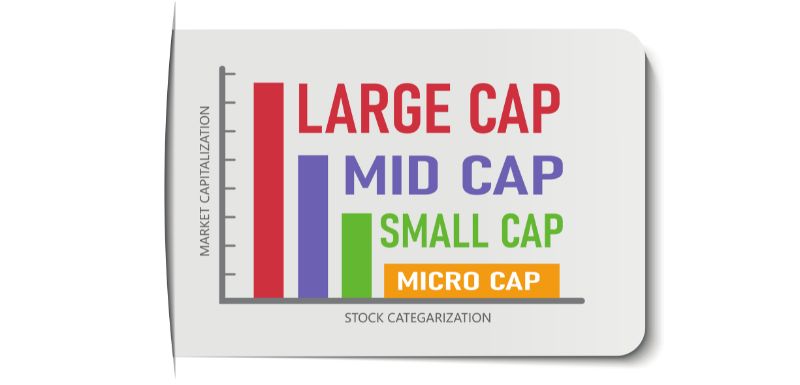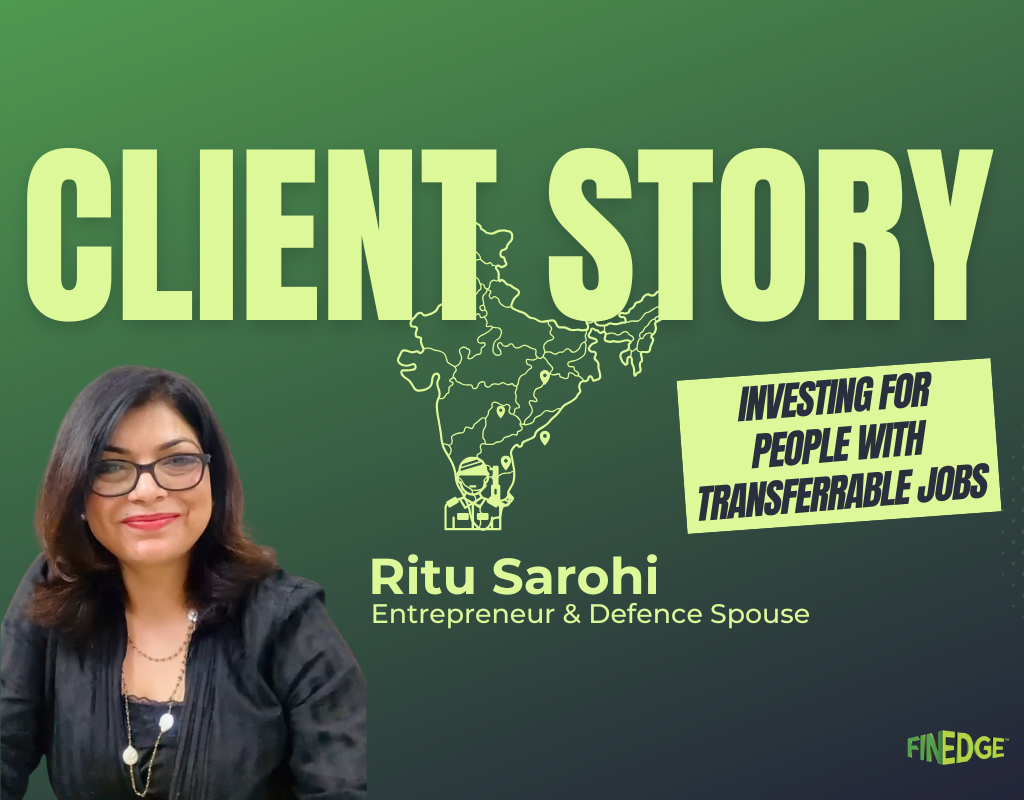Investing Insights
With over 2 decades of experience in the investment industry, Harsh is considered a subject matter expert in personal finance and has a keen interest towards the behavioral side of investing.
FinEdge’s bionic business model and its tech investment platform, Dreams into Actions (DiA), has been conceptualized by Harsh and enables the unique ability of FinEdge to bring the best of processes, people and technology together to deliver tangible value to investors.
Before founding FinEdge in 2011, he has worked extensively in the wealth management & private banking space with Standard Chartered Bank, Religare Macquarie & Dawnay Day AV.
Harsh is an MBA from Symbiosis Institute of Management Studies (Pune) and completed his BCom (Honours) from Hansraj College (New Delhi). Most of his schooling was done in Army Schools (APS – Dhaula Kuan).
Multi-Generational Investment Planning Tips: Boomers, GenX, Millenials, GenZ
No matter your age, the right investment strategy can set you up for financial success. From starting small in your 20s to securing income in retirement, aligning your investments with your life stage ensures you make the most of every opportunity.
Rupee Falling in 2025? Here’s How to Protect and Grow Your Investments!
Imagine you had been saving to buy the new iPhone. A few months ago, the price was Rs.80,000, but now, since the rupee has fallen against the dollar, the price has soared to Rs.85,000. You’re paying more for the same product simply because the rupee has depreciated relative to the dollar. This is exactly what happens when the rupee weakens—it makes everything we import (such as fuel, electronics, and raw materials) costlier.
Should You Continue Your SIP in Small Cap Mutual Funds
Investing in small cap funds requires patience and discipline, especially during market corrections. By staying committed to your SIPs and focusing on long-term goals, you can leverage the power of rupee cost averaging and compounding. Don’t let short-term market noise dictate your strategy—remain focused, stay the course, and trust that your disciplined approach will yield results over time.
Essential Asset Allocation Strategies for a Balanced Investment Portfolio
In 2024 (as of June 2024), the Nifty 50 Index has given a return of 28.12%. During the same period, gold has gone up by 23.56% and fixed income has given a return of 7.27%. In the calendar year 2022, gold was the top-performing asset class, whereas in 2015, fixed income was the top-performing asset class. So, different asset classes take turns to outperform each other year after year. Hence when it comes to managing existing wealth, most investors follow asset allocation by building a diversified investment portfolio. In this article, we will understand what asset allocation is, asset allocation strategies, and how to use them to build a balanced investment portfolio.
How to Plan For Retirement in Your 30s, 40s, and 50s
Would you like to retire with a sufficient corpus to be financially independent in the golden years of your life. Retirement is that phase of life that most people look forward to. Most individuals would have taken care of their financial liabilities and responsibilities by then. But do you know that if planned properly, you could actually create a corpus that could generate retirement income for the rest of your life and be more fulfilled by having enough time to do things you would enjoy most like time with family and relatives, hobbies, travel, socialise etc. Ideally, you should start planning for your retirement corpus at the earliest stage of your working life. If you have not planned, you can still start now, whether in your 30s, 40s or 50s. In this article, we will understand how to plan for retirement at your age.
Investing with Purpose: Goal-based Investing for Women
At the start of July 2024, Axis Mutual Fund released the "Women Investment Behaviour Report 2024". It has interesting insights on how women invest. It talks about the rising participation of women in mutual funds, how they persist with their investments even during market corrections, their goals like building wealth and securing retirement top the chart, etc. All these insights highlight how women are taking control of their investments. Let us discuss how investing with a purpose or goal-based investing can make women resilient and focused investors and, thus, help them achieve their financial goals.
How to Use SIPs to Create Long-Term Wealth
The financial planning journey to create wealth, and fulfil financial goals is a marathon, not a sprint. In this marathon, investing regularly in a disciplined manner through the systematic investment plan (SIP) route is the key to creating long-term wealth. In this article, we will understand how a consistent and disciplined long-term SIP investment can provide you with the benefits of compounding and create wealth.
How are Mutual Fund Returns Calculated?
We invest in financial products to achieve our financial goals. Based on factors like how much we want to invest, for how long, and the target amount, it is the expected returns that help us understand whether we can achieve our goal. The returns can be measured using different ways like absolute returns, compounded annual growth rate (CAGR), etc. In this article, we will understand what is absolute return, CAGR, how they are calculated, and which one you should use.
Step-By-Step Guide to Starting a SIP: Everything You Need to Know
Most of us earn a regular monthly income and hence prefer to invest a regular monthly amount towards our financial goals. Also, it will be great if the monthly investment process is automated after a onetime setup. A Systematic Investment Plan or SIP allows you to do that. In this article, we will understand what is an SIP, how to invest in SIP, and where to invest in SIP.
A Comparison of Small Cap, Mid Cap and Large Cap Funds
The equity mutual fund investing universe is quite vast. Many types of equity mutual funds exist based on the size or market capitalisation of the companies they invest in. These include large, mid, and small cap mutual fund schemes. In this article, we will understand what are large, mid, and small cap funds, their differences, and what you should consider before investing in them.
The Pros & Cons of Robo Advisors
Over the years, the definition of FinTech or “Financial Technology” has expanded from covering companies that supply back-end software systems to Financial Institutions to encompassing a multitude of ventures that leverage technology to disrupt existing ways of executing financial transactions or managing money.
Active and Passive Funds, How They Can Complement Your Portfolio
In the last few years, passive funds have become quite popular among investors. Some reasons for this include the number of passive funds launched by AMCs, wider awareness about them, their performance and benefits, etc.
Latest Posts
Multi-Generational Investment Planning Tips: Boomers, GenX, Millenials, GenZ
Mar 21, 2025
Why a Home Purchase Plan is Important – A Home Loan Checklist
Mar 11, 2025
Rupee Falling in 2025? Here’s How to Protect and Grow Your Investments!
Feb 08, 2025
The Impact of Inflation on Your Financial Goals
Feb 08, 2025
Your Child’s Education Goal: A Step-by-Step Investment Guide
Feb 08, 2025
Investment Plans for NRIs: Yasser Khan’s Testimonial
Apr 02, 2025
Appreciation shown by our clients
Oct 05, 2023
How the Modern Woman is taking Investing decisions
Aug 21, 2024


.jpg)


.jpg)












